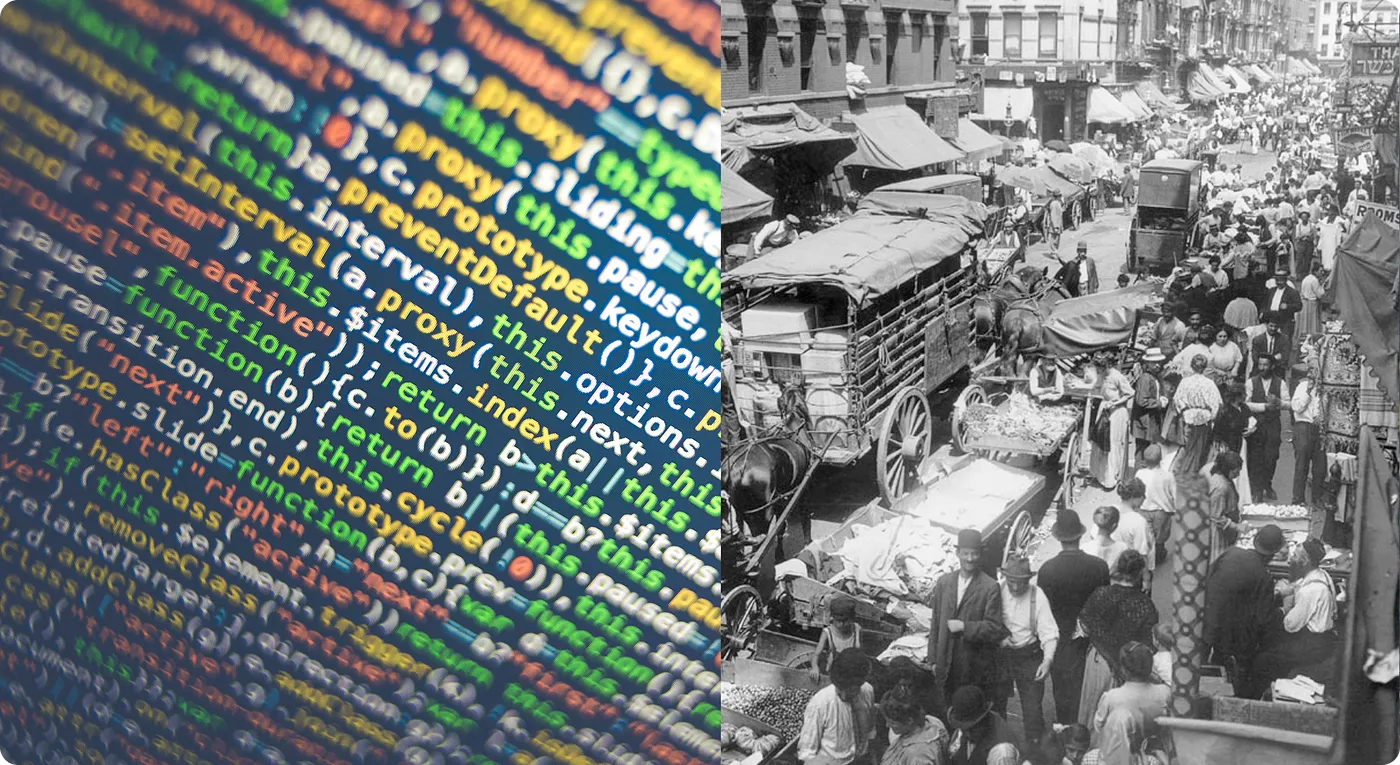See what I did there? You probably thought there was a typo in that title, right? “He meant unprecedented” you may have thought. Wrong.
I’ve just listened to another presentation about the future, about “exponential” about how things are changing faster than they ever have in human history. This speaker, like many, many others before them, takes this to mean that we need to act radically different than we have in the past because the pace of change makes it almost impossible to imagine the future.
So, what’s wrong with this picture?
To show you, let’s do a thought experiment:
Imagine that you are born in 1983. In another year, Apple will launch the Macintosh ushering in an amazing era of personal computing. During your lifetime, up to 2023, 40 years later, you will have seen the rise of Microsoft, Google, Facebook, and Tesla. You will carry in your pocket a mobile computing device that is beyond anything the original Macintosh engineers could build 40 years before. You do most of your banking, shopping, and communicating online. AI is about to be the next big thing.
At the hospital, you have access to an MRI machine that can take pictures inside your body. Scientists were able to create a completely new vaccine against Covid in less than a year using the new mRNA technique. You have lived through a world economic crash in 2008 and a global pandemic in 2020.
The Soviet Union dissolved, the EU strengthened, and now right-wing politicians are trying to usher in a new age of fascism. Social media is driving connection and propaganda. The world is more connected now than at any other time in history.
Now, imagine you are born in 1893. Your home is lit by candles and kerosene lamps, the streets by gas. You move to your city by walking and horse and buggy, in-between cities by train. There is an outhouse in your tenement and if you’re lucky you have an icebox in the kitchen.
40 years later, the car has been invented and fills your city. The airplane has been invented and pilots have flown them across the oceans. The radio has been invented and you listen to it nightly to listen to the news, to entertainment, and to politicians. You have a refrigerator in your house, electricity, and incandescent bulbs light your home. You have a flush toilet! The biggest entertainment attraction is going to the movies for 10 cents, another thing that didn’t exist in 1893.
Penicillin has been invented which means that for the first time in human history, we have antibiotics. You have lived through a devastating world war and an even more devastating pandemic. The personal income tax has been introduced. You are living through an extreme worldwide depression but the new Keynesian economics that will help countries through it are the same politics that got us through the 2008 crash.
Einstein has developed his theory of relativity. Marie Curie has discovered radiation.
40 years after your birth, fascism is on the rise in Europe.
If you were born in 1983, your home had a microwave, TV, VCR, a rotary phone, a telephone answering machine and you had a car. The average life expectancy in the U.S. was 74.6 years. In Sweden, it was 76.6 years.
In 2023 your home still had a microwave and a TV. Streaming services have replaced your VCR, the rotary phone is non-existent, as is the answering machine, both replaced by mobile phones. You still have a car, but it may be hybrid or electric, but you’d be in the minority. Life expectancy in the U.S. is 76.4, in Sweden, it is 83.3 years. So, especially if you live in the U.S., not much has changed that much in typical home life, despite the feeling that we live in unprecedented times.
In 1893 the average life expectancy in the U.S. is about 46 years. In 1933 it is about 59 years.
In 1933, your home is completely unrecognizable from your home in 1983. Actually, your entire world is unrecognizable, from transportation to communication to forms of government.
If you took a 40-year-old from 1983 and dropped them into 2033 they would have a hard time figuring out how to do everything digitally, especially in the cashless digitized Sweden. But they could understand the rest.
If you took a 40-year-old from 1893 and dropped them into 1933 they would think they landed in a science fiction movie (although they wouldn’t know what a movie is!).
The pace of change between 1893 and 1933 was unprecedented. The pace of change between 1983 and 2033 is not.
Yes, things change fast. Yes, we face some enormous challenges with our climate and the future viability of homo sapiens on Earth. But enough with the blather about our “unprecedented times.” For me, it shows a lack of understanding and introspection and speaks of the need to feel “special” or “exceptional” — of which we are neither.
We have work to do. It doesn’t help to fantasize about the now. Just be thankful that you were born in 1983 when we had antibiotics and not in 1893 when we didn’t.
Photo credits: On the left, photo by Markus Spiske on Unsplash. On the right, Hester Street, NY in the 1890s (where my grandmother was born).





